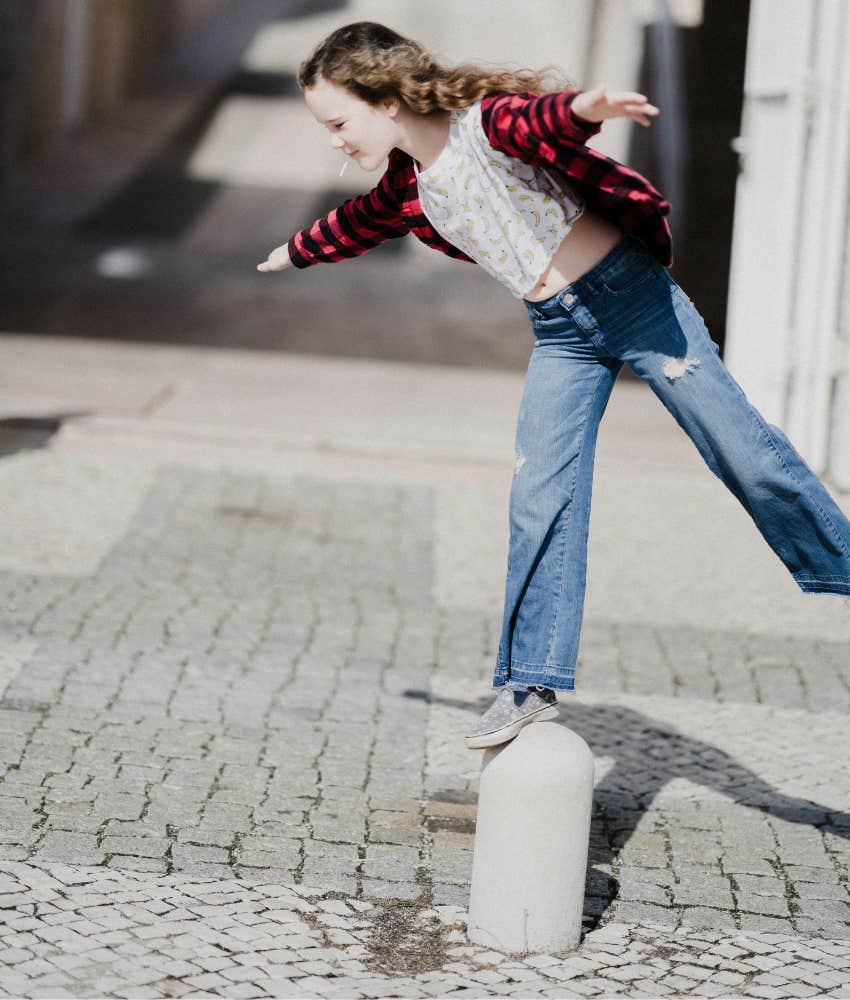Family Therapist Reveals The Consistent Issue She Sees In People Raised By Overbearing Parents With No Boundaries
It all comes down to trust.
 Brooke Cagle / Unsplash
Brooke Cagle / Unsplash Our childhoods don’t always end as we enter adulthood, especially if we’re carrying patterns of behavior that we learned as kids into our older years.
Sometimes, these patterns serve us well; other times, they can hold us back from being our fullest selves.
A family therapist revealed the consistent issue she witnesses in people raised by overbearing parents with no boundaries.
A therapist named Ellie shared “the number one thing” she saw during her time in family practice in teenagers with “really overbearing, really emotionally messy parents.”
She observed that people raised by parents without solid boundaries struggle to trust themselves when making decisions, tending toward anxiety instead of self-assurance.
“They didn’t know how to make decisions for themselves,” Ellie said. “They didn’t know how to trust themselves, and they were all around just a very high-functioning anxious mess on the inside.”
Ellie explained that she now sees this personality trait more indirectly in her work as an adult counselor, seeing clients who “had those kinds of upbringings and are now trying to work through their upbringing stuff.”
 Photo: Annie Spratt / Unsplash
Photo: Annie Spratt / Unsplash
“It’s really interesting when we go through their upbringing, and we both realize that they never went through the developmental stage of learning to trust themselves,” she continued.
“That was a stage that was just skipped for them,” Ellie said. “They didn’t get that experience.”
She shared how not being allowed to take calculated risks as a teenager can lead to a lack of self-trust as an adult, explaining that “The adolescent brain is actually wired to seek new experiences, to push back against the norm, and to end up in risky situations, like it’s actually a neurobiological thing.”
Ellie discussed safe ways to take risks, noting that “parenting still needs to happen. You don’t just let your kids do whatever they want, but if you weren’t ever allowed to push those boundaries a little bit, take some risks, still have the warmth and support of your family, even when you [expletive] up,” it can affect how you experience yourself later in life.
“If you were so tightly controlled or you were in such fear that you would never do those risky things, it carries through to adulthood in confidence, in other relationships, and just how you see the world,” she concluded.
Ellie offered guidance for people who don’t know how to trust themselves, starting with acknowledging the fact that they skipped a major developmental stage.
“If you did, it’s okay,” she assured viewers. “We can redo it. I think it’s just really important to clarify that’s the issue causing your lack of self-trust.”
In a separate post, Ellie expanded on her initial observations, fielding questions she received from people wondering how to build self-trust.
She reiterated that self-trust is a crucial developmental stage for kids and teens to experience, saying, “When we go through adolescence, one of the developmental stages that we should go through and should be supported and encouraged to go through is having independence and a formation of your own identity.”
Parents often don’t feel comfortable letting their kids move through that challenging stage because of their own anxiety or other deep-seated issues.
Ellie shared how to build self-trust as an adult after a lifetime of not cultivating it.
“The first thing I’m going to have you do is stop asking everyone for advice,” she said. “It’s really great if you have supportive people in your life who help you out, who give you some perspective. But if that’s your default and you don’t ask yourself any questions or sit and process ever, stop doing that.”
She likened building self-trust to building a muscle, cautioning that people whose default is to ask for outside advice are “abandoning the self-trust muscle.”
Ellie said that constantly seeking outside advice is “pretty common” for people who don’t trust themselves.
She also advised people to “set up little behavioral experiments” that teach how to listen to themselves and trust their intuition.
“Identify where your self-trust presents, like it’s in relationships, is it in just daily tasks, as in with your anxiety… Everyone’s super different, so just identify where the self-trust is showing up and make little experiments for that.”
 Photo: Gabriel Brito / Unsplash
Photo: Gabriel Brito / Unsplash
She offered an example: "If you were unable to trust your intuition with relationships, or trust yourself enough to speak up for yourself, sometimes I would set a little task of, ‘This week I’m going to speak up for my needs.’ See what happens, see what comes up.”
“See if you can do something slightly different and ultimately change how you’ve been doing things so you can go, “Okay, regardless of how it goes, if it goes good or bad does not matter, you did it,” she continued.
Ellie mentioned the importance of practice and repetition to develop self-trust later in life, saying, “You just need repeated action to be like, ‘Oh, okay, I can do this.’”
“As always, all this stuff is super nuanced and super individual,” she cautioned.
Ellie’s overarching message hinged on people giving themselves the grace to learn a new skill, highlighting that people can change, especially when it comes to how they interact with the world around them and how they see their place in that world.
Anxiety can be a hard thought pattern to break free from, yet Ellie shared a valuable lesson on how to do so: treat yourself gently and reparent yourself to break free from behaviors that no longer serve you.
Alexandra Blogier is a writer on YourTango's news and entertainment team. She covers social issues, pop culture analysis, and all things to do with the entertainment industry.

